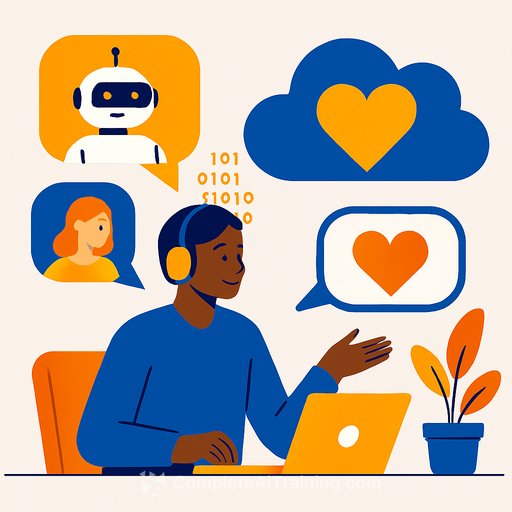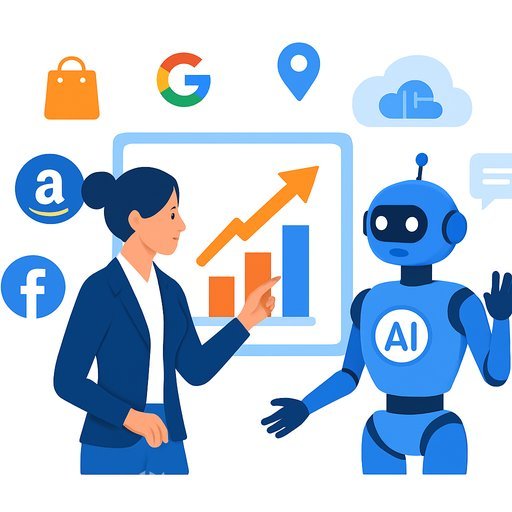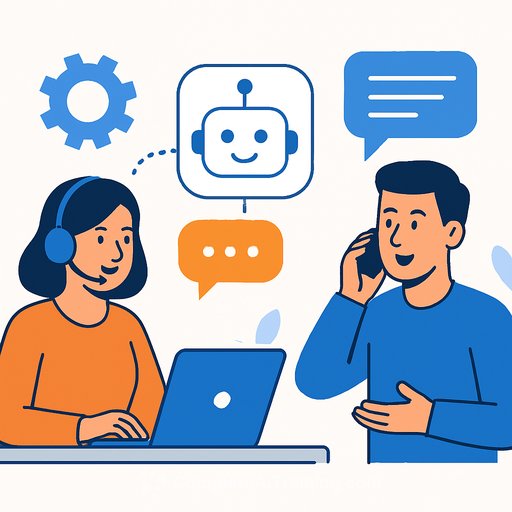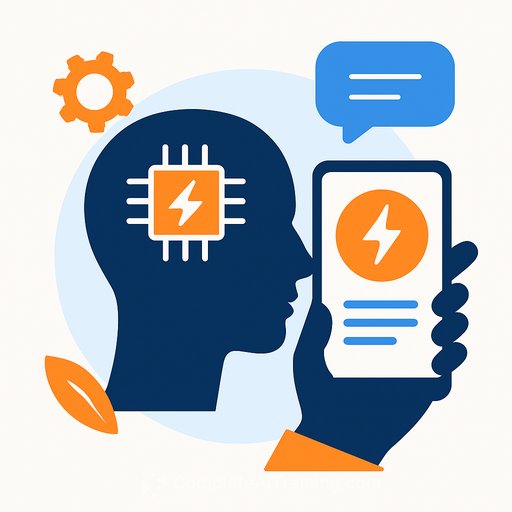A Million Customer Conversations with AI Agents Taught This Surprising Lesson
Salesforce has handled over one million AI-driven customer interactions since launching its AI agents on the Salesforce Help site in October 2024. With more than 60 million visits annually, the site offers extensive product content and support. These AI conversations ranged from simple queries to playful requests, revealing a crucial insight: AI agents must be as dependable and empathetic as top human employees. Intelligence alone isn't enough; delivering excellent, human-centered service is key.
Salesforce started with a limited rollout and focused content, learning and improving quickly. Now, AI agents offer consistent, multilingual support at scale, powered by a rich and reliable data foundation. Here are three practical best practices for integrating AI into customer service.
1. Content is King, Variety is Queen for AI Agents
The quality and accessibility of content determine the effectiveness of AI agents. Outdated or inaccurate information renders AI useless. Salesforce’s AI taps into a vast library of over 740,000 reliable content pieces, combining structured and unstructured data to deliver accurate, timely answers.
But not all content is created equal. Some information was outdated or inconsistent, so Salesforce established processes involving human experts to regularly update and organize content. Access to both structured and unstructured data is essential for AI to provide context-rich, precise responses.
Unstructured data forms the backbone of understanding. It includes:
- Knowledge articles: Guides, FAQs, troubleshooting, and documentation.
- Customer interaction logs: Past chats, calls, emails, and social media interactions reveal recurring issues and successful resolutions.
- Product forums and community discussions: Real-world user insights and tips.
- Internal communications: Training materials, memos, and updates provide internal context.
- External sources: Industry news and market trends help shape strategic responses.
This rich unstructured data allows AI to grasp nuances and provide answers tailored to specific situations instead of generic replies.
Structured data enables personalization. It delivers actionable insights by organizing customer profiles, purchase history, and preferences. This helps AI offer customized recommendations and proactive solutions.
Salesforce’s zero-copy network and data cloud unify these data sources in real time, eliminating costly replication. This integration powers AI agents to:
- Deliver highly accurate, validated responses.
- Offer relevant, context-aware solutions.
- Enhance self-service capabilities.
- Improve human agent efficiency by providing quick access to information.
- Proactively anticipate and address customer needs.
Combining structured and unstructured data transforms AI agents into intelligent partners that meet and anticipate customer needs with precision and empathy.
2. A Smart AI Agent Needs a Dynamic Brain and a Caring Heart
Effective AI agents require a dynamic “brain” that learns and adapts continuously. Salesforce uses a knowledge cycle that integrates data, understands intent, and improves through feedback and analytics. Weekly reviews and real-time monitoring refine AI responses based on actual usage and human insights.
But knowledge alone isn’t enough. AI also needs a “heart.”
Key learnings include:
- Flexibility matters: Initially, AI couldn’t mention competitors, which blocked valid integration answers. A more nuanced approach—guiding AI to act in Salesforce’s best interest—allowed better, context-aware responses.
- Customer questions evolve: Customers began asking personal account questions like “Who is my Account Executive?” This shifted AI from simple Q&A to deeper, personalized interactions.
- Humans remain essential: Salesforce aimed for a 1% human hand-off rate but found it hindered customer satisfaction. Adjusting to a 4% hand-off rate made it easier for customers to reach a human when needed, improving trust and success.
3. Prioritize Empathy from the Start
Technical accuracy is important, but how solutions are delivered matters more. Even the best answers lose value if they lack empathy.
This insight changed how Salesforce trains both human support and AI agents. Agentforce now leads with empathy, mirroring the best human support behaviors.
In high-stress situations like outages, the AI starts with empathetic phrases such as:
- “I’m truly sorry to hear you’re experiencing this.”
- “I understand how frustrating this can be.”
Then it assures urgency and commitment to resolution, for example:
- “I’ll connect you with a dedicated support engineer as quickly as possible.”
- “We’re actively working on this and will ensure you get immediate attention.”
This approach prioritizes customer feelings and trust before any technical troubleshooting. It transforms AI from a simple tool into a trusted partner that customers feel understood by, even in tough moments.
Key Takeaway: Balance Brain and Heart in AI-Powered Service
Salesforce’s journey shows that focusing solely on efficiency and data accuracy isn’t enough. The initial 1% human hand-off rate made it hard for customers to reach a human, hurting satisfaction.
Empathy and soft skills matter just as much as knowledge. Raising the hand-off rate to 4% ensured customers can easily connect with humans when needed, building trust.
The future of customer service lies in combining smart data-driven AI with genuine human empathy. This hybrid approach requires ongoing experimentation and learning. Move quickly but thoughtfully. Use your organization’s collective brain and heart to create customer experiences that truly deliver value.
Once you integrate AI thoughtfully with empathy and continuous improvement, you’ll find the benefits hard to give up—for customers, employees, and the business alike. Keep learning and refining with every conversation.
Your membership also unlocks:





